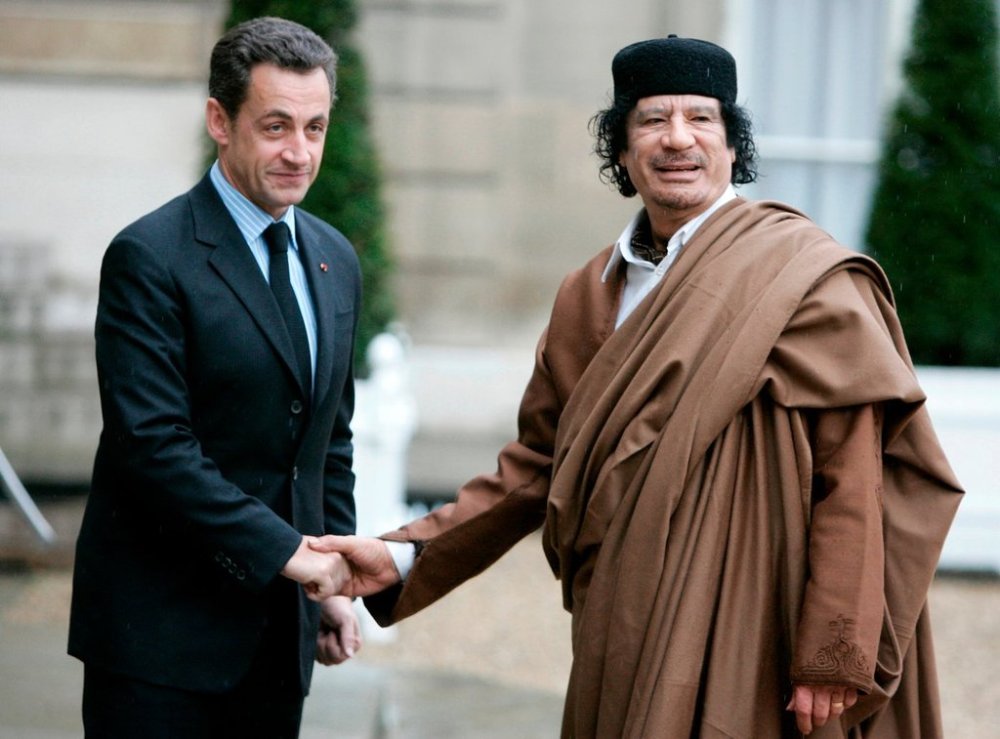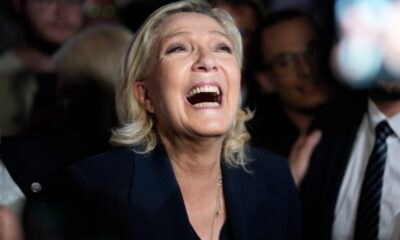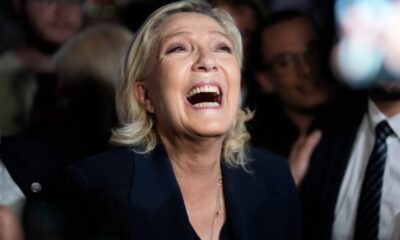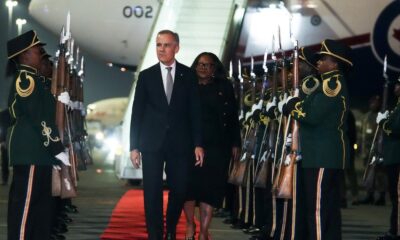World
Paris Court Set to Rule on Sarkozy’s Alleged Libyan Campaign Funds

A Paris court is poised to deliver a verdict on Nicolas Sarkozy, the former President of France, who faces serious allegations of illegally financing his 2007 presidential campaign with funds from the late Libyan leader Moammar Gadhafi. If convicted, Sarkozy could face a sentence of up to 10 years in prison, marking a significant moment in French political history. The verdict is anticipated on Thursday.
Sarkozy, who served as president from 2007 until losing reelection in 2012, stands accused of accepting illegal foreign funds, a claim that could make him the first former French president to be convicted for such an offense. Throughout a three-month trial earlier this year, Sarkozy maintained his innocence, asserting that the charges are politically motivated.
The allegations emerged from claims made by a Libyan news agency and Gadhafi himself in 2011, stating that millions of euros had been funneled into Sarkozy’s campaign. In 2012, the investigative outlet Mediapart published a document purportedly from Libyan intelligence that referenced an agreement for 50 million euros in funding. While Sarkozy labeled the memo as a forgery and pursued legal action for defamation, French magistrates later indicated the document’s authenticity, although definitive evidence of a transaction has not been presented.
Details of the Case and Broader Implications
The investigation also scrutinized several trips to Libya involving Sarkozy’s associates during his tenure as the interior minister from 2005 to 2007, including his chief of staff. A central figure in this narrative, Ziad Takieddine, a Franco-Lebanese businessman, alleged that he delivered cash from Tripoli to the French Interior Ministry on Sarkozy’s behalf. Takieddine later recanted his statement, prompting a separate investigation into potential witness tampering that affects both Sarkozy and his wife, Carla Bruni-Sarkozy.
The trial has drawn attention not only for its implications for Sarkozy but also for its reflection on France’s diplomatic history with Libya. Sarkozy was among the first Western leaders to advocate for military intervention in Libya during the 2011 uprisings, positioning him as a critical player in the events that led to Gadhafi’s ousting.
Prosecutors have sought a seven-year prison sentence, arguing that Sarkozy knowingly engaged in a “corruption pact” with Gadhafi’s regime. The former president, now 70 years old, labeled the legal actions against him as a “plot” orchestrated by “liars and crooks,” asserting that the claims are retaliatory actions linked to his role in advocating for Gadhafi’s removal.
Previous Legal Challenges and Consequences
This trial is part of a broader pattern of legal difficulties for Sarkozy, who has faced multiple scandals during and after his presidency. In June 2021, he was stripped of his Legion of Honor medal following a conviction for corruption and influence peddling, which resulted in a sentence requiring him to wear an electronic monitoring device for a year. He was conditionally released in May 2022 due to his age.
In yet another legal challenge, Sarkozy was convicted in 2021 of illegal campaign financing related to his unsuccessful 2012 reelection bid, facing accusations of exceeding the maximum legal spending limit. He has appealed this verdict to the highest court in France, the Court of Cassation, which is still pending.
As the Paris court prepares to announce its decision, the impact of this case extends beyond Sarkozy himself, potentially altering the landscape of French politics and influencing public trust in political financing and integrity. The ruling will likely resonate throughout the nation and beyond, as it touches on themes of accountability, governance, and the legacy of political figures.
-

 Politics4 weeks ago
Politics4 weeks agoSecwepemc First Nation Seeks Aboriginal Title Over Kamloops Area
-

 World5 months ago
World5 months agoScientists Unearth Ancient Antarctic Ice to Unlock Climate Secrets
-

 Entertainment5 months ago
Entertainment5 months agoTrump and McCormick to Announce $70 Billion Energy Investments
-

 Science5 months ago
Science5 months agoFour Astronauts Return to Earth After International Space Station Mission
-

 Lifestyle5 months ago
Lifestyle5 months agoTransLink Launches Food Truck Program to Boost Revenue in Vancouver
-

 Technology3 months ago
Technology3 months agoApple Notes Enhances Functionality with Markdown Support in macOS 26
-

 Lifestyle3 months ago
Lifestyle3 months agoManitoba’s Burger Champion Shines Again Amid Dining Innovations
-

 Top Stories2 months ago
Top Stories2 months agoUrgent Update: Fatal Crash on Highway 99 Claims Life of Pitt Meadows Man
-

 Politics4 months ago
Politics4 months agoUkrainian Tennis Star Elina Svitolina Faces Death Threats Online
-

 Sports5 months ago
Sports5 months agoSearch Underway for Missing Hunter Amid Hokkaido Bear Emergency
-

 Politics5 months ago
Politics5 months agoCarney Engages First Nations Leaders at Development Law Summit
-

 Technology5 months ago
Technology5 months agoFrosthaven Launches Early Access on July 31, 2025




















